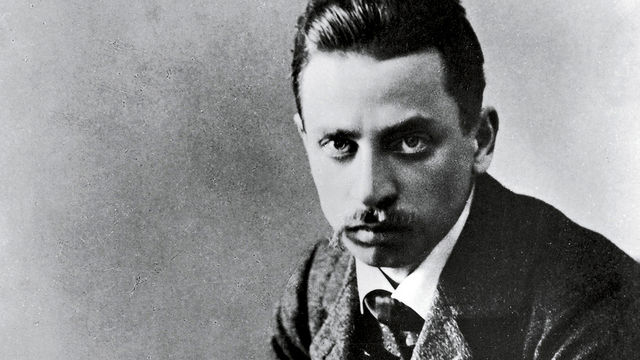Grades: Middle and high school
Opening Discussion:
Ask students if anyone speaks a language other than English. Give the students a chance to share their other languages with each other, and ask if anybody has tried translating, either orally or in written form. What are some of the challenges of translating?
Explain to students that even if you only speak one language, when you write, you’re taking part in a translation—you’re translating your ideas from your mind onto the page, into language that somebody else can understand.
Mentor Text:
Introduce Rainer Maria Rilke’s poem “Herbsttag.” If you have a German-speaker in the class, you might ask them to read the poem aloud. You could also play an audio version like this one.

Tell students: Rainer Maria Rilke is a very well-known German poet, and so this poem has been translated into English by many different people. We’re going to read a selection of translations by different writers, paying close attention to the different ways they decided to render the poem in English.
Read the first two translations aloud, and ask students to comment on the differences that they notice. You might ask students to circle the differences on their page, or mark them up on the board. As students note the differences between the two translations, ask them which version they prefer, and why. Some students may disagree—ask them to try and describe what it is about their preferred version that they like best. What effect do the translator’s choices have on the way we read the poem?
Once students have become comfortable discussing the choices in the first two translations, continue through the other translations that follow. You may choose to discuss some at greater length than others, to address only a smaller set of the translations, or even to break students into groups to compare the various versions of Rilke’s poem.
Writing Task:
When students have compared and discussed enough different translations of the poem that they are well-versed in its content, ask them to write their own, ideal translation of “Herbstaag.” They don’t need to know any German to do so—instead, they can draw on the many different English versions, mixing and matching different translator’s lines, and even rephrasing them to suit their own version of the poem.
Wrap-up:
Invite students to share their translations of Rilke’s poem, and to talk about the choices that they made.
After students have shared, you might ask them to consider any of these questions:
- How does this compare to writing your own poetry?
- How does translation relate to revision?
- How could we apply this process to revising our own poems?
Download: Revision by Translation
Photo (top) via Baseball Prospectus



